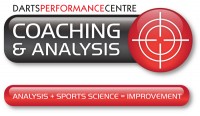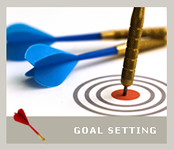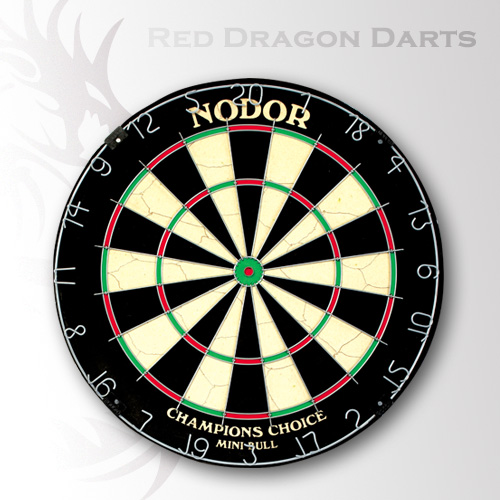
Coaching Clinic 6
Posted: 22.11.11 in Coaching Clinic Blog category
The Coaching Clinic this month takes a look at a common problem in darts "the snatch". We also tell the tale of a practice board sadly lost at sea!

Snatching The Dart
Richie Burnett rolled back the years at the recent World Grand Prix event with a fantastic display of darts. One part of his game that stood out for us was him snatching his darts and in particular why was it usually the third dart? This is of course a common problem and one we get asked about a lot.
When you throw a dart you start a chain of events that begins in the head. This chain starts with the brain. The brain then sends a message to all the muscles you need to throw the dart that they need to be activated and help out with the throw. There is a of course a fraction of a second delay between the brain passing on the message and the activation of the muscles.
The brain is also aware of exactly what muscles are needed to throw a dart. This is where the hours of practice players put in pays off and where the expression “muscle memory” comes from. However, the brain can also detect if there is a problem with the action (change in technique). What happens then is that the brain sends out another signal to the muscles trying to correct the motion. Due to the split second delay from the brain to the muscles the message arrives too late and the player’s technique fails resulting in a snatched dart.
A third dart snatch it is usually caused by the player leaning further forward. What happens during the throw is that a lot of players have a slight centre of gravity shift towards the board during each throw. If, however, the centre of gravity does not return to its original position after the second dart and remains forward, the brain will detect this and try to compensate by sending out another signal. Because of the nature of the movement and its speed there is very little time to correct, hence the snatch. Sometimes the dart will go where it is intended (as Richie managed to do more often than not) but other times not.
Leaning to the side can also be a factor. Those that lean into each dart will encounter the same problem if the lean is not consistent between each dart.
Fix?
If you can accurately replicate your movements between each dart it will eventually eliminate the snatch.
Training Aids
Dart players don’t really have much choice when it comes to training aids. Golfers have literally hundreds of apps for their phones, putting aids, driving aids and of course qualified coaches.
One training aid dart players do have is dart boards with smaller doubles, trebles and even a mini bull. It would appear, however, that some players wish these didn’t exist either. One client recently ordered one of our practice boards for a friend for his birthday to replace the one “lost at sea”!
After a particularly frustrating night recently in their local pub the practice board was hurled off a pier on the coast of Scotland somewhere, never to be seen again. We can all empathise with this player’s mounting frustration but we also do advise to use these boards sparingly.
Two ideas we use that have proved effective for some of our clients are to first off use the practice board during your warm up. Play on the mini board for an hour before a match and the full size board looks un-missable report some clients. Look at the video for confirmation of that:
Whether it is a psychological effect or just the extra focus and concentration needed on the smaller board that gets transferred to the “proper” board is not important. The positive effect it has is the key thing. Secondly get the better players you practice with to throw at the practice board whilst you stay on a normal size board. This will make for a closer match, add “pressure” for both players providing you are both keen to win and equally as important it is good fun too!
Please come and show your respect to the Practice Board on our tribute Facebook page!
..............................................................................................................................................
The Darts Performance Centre is a resource to assist dart players of all standards play better darts. We are also committed to researching all aspects of darts to provide players with information and solutions that most other sports take for granted. Please support us by joining today.Membership is £25.00 per annum.
We also offer group coaching days and we will shortly be arriving at a darts centre near you for one on one video analysis sessions - please register for free to join our mailing list to find out when and where we will be.
Post by Category
Posts by Month
- November 2025
- October 2025
- September 2025
- August 2025
- July 2025
- June 2025
- May 2025
- April 2025
- March 2025
- February 2025
- January 2025
- December 2024
- December 2024
- November 2024
- October 2024
- September 2024
- August 2024
- July 2024
- June 2024
- May 2024
- April 2024
- March 2024
- February 2024
- January 2024
- December 2023
- December 2023
- November 2023
- October 2023
- September 2023
- August 2023
- July 2023
- June 2023
- May 2023
- April 2023
- March 2023
- February 2023
- January 2023
- December 2022
- December 2022
- November 2022
- October 2022
- September 2022
- August 2022
- July 2022
- June 2022
- May 2022
- April 2022
- March 2022
- February 2022
- January 2022
- December 2021
- December 2021
- November 2021
- October 2021
- September 2021
- August 2021
- July 2021
- June 2021
- May 2021
- April 2021
- March 2021
- February 2021
- January 2021
- December 2020
- December 2020
- November 2020
- October 2020
- September 2020
- August 2020
- July 2020
- June 2020
- May 2020
- April 2020
- March 2020
- February 2020
- January 2020
- December 2019
- December 2019
- November 2019
- October 2019
- September 2019
- August 2019
- July 2019
- June 2019
- May 2019
- April 2019
- March 2019
- February 2019
- January 2019
- December 2018
- December 2018
- November 2018
- October 2018
- September 2018
- August 2018
- July 2018
- June 2018
- May 2018
- April 2018
- March 2018
- February 2018
- January 2018
- December 2017
- December 2017
- November 2017
- October 2017
- September 2017
- August 2017
- July 2017
- June 2017
- May 2017
- April 2017
- March 2017
- February 2017
- January 2017
- December 2016
- December 2016
- November 2016
- October 2016
- September 2016
- August 2016
- July 2016
- June 2016
- May 2016
- April 2016
- March 2016
- February 2016
- January 2016
- December 2015
- December 2015
- November 2015
- October 2015
- September 2015
- August 2015
- July 2015
- June 2015
- May 2015
- April 2015
- March 2015
- February 2015
- January 2015
- December 2014
- December 2014
- November 2014
- October 2014
- September 2014
- August 2014
- July 2014
- June 2014
- May 2014
- April 2014
- March 2014
- February 2014
- January 2014
- December 2013
- December 2013
- November 2013
- October 2013
- September 2013
- August 2013
- July 2013
- June 2013
- May 2013
- April 2013
- March 2013
- February 2013
- January 2013
- December 2012
- December 2012
- November 2012
- October 2012
- September 2012
- August 2012
- July 2012
- June 2012
- May 2012
- April 2012
- March 2012
- February 2012
- January 2012
- December 2011
- December 2011
- November 2011
- October 2011
- September 2011
- August 2011
- July 2011
- June 2011
- May 2011
- April 2011
- March 2011
- February 2011
- January 2011
- December 2010
- December 2010
- November 2010
Main Index






.jpg)
.jpg)

